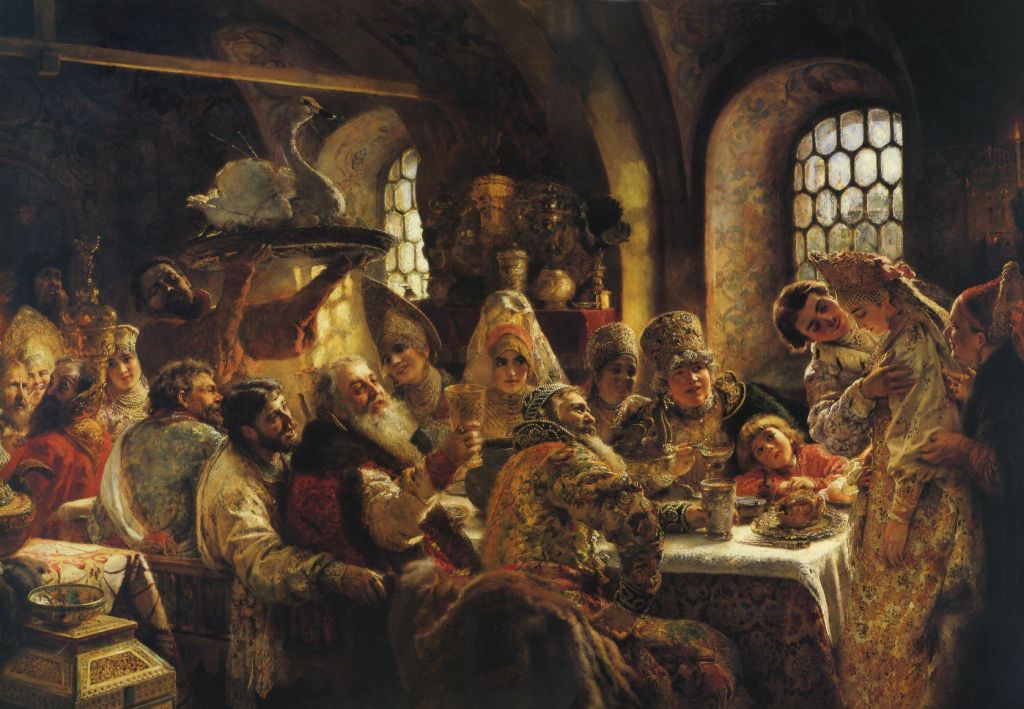“Drink this!” she said gaily, and perhaps a little too loudly. She handed him a fine-wrought yet small cup of some unknown metal. It seemed to flow into his hand as if it too were made of liquid, yet it also felt smooth, hard, and warm.
“He took the cup not unenthusiastically, for he had previously partaken of Eldeven wines on other occasions and knew them to be excellent and comforting. Even to the disheartened. Perhaps more potion than mere drink.
He sipped, and then drank more vigorously.
Then he help the cup in the palm of his hand, still feeling the peculiar warmth it seemed to radiate through the cup, or because of it, and stared at the remaining draught. It was almost weightless in his hand.
“Would that in consuming I would always far better account for that which most oft consumes me…”
She laughed. “Is that verse?” she asked good-naturedly.
He frowned quickly. “If you wish.”
Then he added somewhat moodily, “However do not mistake the report of a thing for the thing itself.”
He paused a short while before speaking again, still puzzling at the fine and almost arcane work upon the Eldeven cup from which he drank.
“I think rather it the philosopher, mystic, and metaphysician in me,” he finally admitted. “Or perhaps I am but a frustrated soldier. Or priest.”
The latter remark may have been the more truthful he thought to himself, or perhaps they all were.
She smiled pleasantly, but also somewhat craftily and perhaps even knowingly.
“Is it not enough then to be a Master Poet among men?” she teased him.
Larmaegeon placed his cup upon the heavy, large feasting table with its unspun cloth of gold and dark silver filigree for needleless embroidery. He smiled in his own turn but it seemed more an inner musing than a pleasantry.
“Poetry is Mastery of Nothing. Except mere words. And words are absolutely nothing without a Mastery of Life to birth them. Otherwise words and verse both are but whispers upon the winds. Perhaps they go here, perhaps there, seen to bend this limb, displace that grain of sand, but other wise no one knows from whence they came or where they go. If they go. Otherwise they catch the ear of this wandering man, or that pleased lady, or travel out in time to light upon the fancy of some child yet unborn. But poetry is not mastery, so much as its echo. Art, without Manhood, is neither master of anything, nor does it master anything. And clever words are not achievements or Life, they are at best, and most often, the mere reflection of both.”
This seemed to both disturb and yet curiously satisfy the Russian Witch. Larmaegeon watched her eyes momentarily as they adjudged him, and then noticed that her reddish-blonde hair, though it shifted in colour and aspect often in the day, appeared as smooth and flowing and shimmering gold in the strangely steady glow of the surreal fires of the Eldeven hall.
Klura picked up her own cup and drank lightly from it, her eyes and quizzical brows peeking above the lip of her drink as if they looked at the Bard from a great distance, or from another time. She finished, lowered her drink, and spoke again.
“Do you then think so little of what you do, while so many others think so well of it?” she asked, but not teasingly this time.

“I do,” Larmaegeon replied instantly and without any hesitation. “I do think little of it.” Then he raised his cup again, saluted her and hers, and said without any irony at all, “And yet, my dear, I excel at it…”
Then he made a small bow and rose fluidly from his chair and having stood looked down at her.
“Excuse me,” he said, “I will indeed be poor company tonight. And that is entirely my own fault.”
Then he turned and walked away and towards the hall’s great doors and swung them open unaided by the guards, who watched him warily but without movement, as he silently departed the room.
Klura watched him go, his simple green wardrobe seeming to darken almost into a glistening black as he left. And then he was gone, and not even his restless shadow seemed a lingering memory at that moment to her. And yet, somehow, his words remained…
(This is a first-draft bare-sketch I wrote of a scene between the Welsh Bard Larmaegeon and the Russian Witch Klura as they were being entertained at the hall of the Samarl of Samarkand by the Sidh and Prester John [Jhönarlk]. It came to me this morning as I have been writing and working on several of my novels much of late. Even been composing a fair amount of poetry. I guess to be occupied of mind is to be occupied, if you’ll act on it that is. Anyway I have edited it once, for spelling so far but no farther. It concerns what Larmaegeon thinks of Poetry and his profession as a Bard, especially given recent events in the novel, and what Klura thinks of him [to a degree]. In one way you could call it a scene of Romance and in another a criticism and critique of both Verse and Romance sans Action. Or, yet another of my criticisms of the State of the modern World in the West. Which effeminately thinks that mere thoughts and words and wishes [filigrees and embroideries and pedigrees, or in modern terms information/journalism and memes and talk] fix or resolve the world. Or that those things alone ever amplify the true Good, or protect anyone or anything from actual evil…)
From the second novel in my High/Mythological Fantasy Trilogy The Kithariad (The Doom of Kitharia)
#novel #fiction #writing #literature #HighFantasy #poetry

















You must be logged in to post a comment.